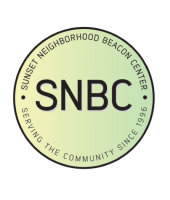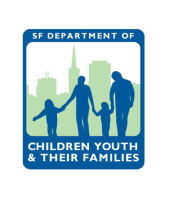What Was I Thinking? is a column which attempts to retrace the musical past of Glenn Jackson, a Bay Area-based writer, critic, and genuine music nerd. As the column is done in conjunction with Sunset Media Wave—a San Francisco-based program for teen bloggers—it seems only fitting that this particular corner of the internet be used as a means to explore my (that is, Glenn Jackson’s) own teenage musical past…for better or worse. With that in mind, the third installment of What Was I Thinking? will take a look at the Billboard’s Year-End Hot 100 charts from 2001 – 2004, specifically taking a long hard look at what were ultimately deemed the #1 hits from each year I spent as a bespectacled high school student.
And so it begins: 2001.
Lifehouse “Hanging by a Moment”
Somehow, this song was number one on Billboard’s Year-End Hot 100 chart for 2001. I must admit, I barely remember this song and certainly don’t remember it as a megahit, though it seems totally plausible that Lifehouse’s impact was not felt as strongly in my sliver of Southern California as it was throughout the rest of the nation.
Really, it’s a bit hard to pin down exactly what genre (or combination of genres) this song falls into—it feels like it is partially in line with what was at the time being called “alternative rock,” but certainly a more polished/commercially focused version of that. It kind of sounds like they sucked all the edge out of bands like Pearl Jam and Stone Temple Pilot (groups, admittedly, a bit before my time and not ones I am particularly fond of). Still, I can see that chorus digging deep into one’s head (largely uninvited?) and refusing to leave for days on end. All in all though, what a lackluster year-end Billboard #1 to start the century off with.
Onto sophomore year: 2002.
Nickelback “How You Remind Me”
Is this not an even more finely calculated version of Lifehouse’s #1 tune from the previous year? It really is heartwarming to see how much shade gets thrown Nickleback’s way nowadays. For some very real, tangible reasons and for some very hard-to-quantify reasons, this band seems to sum up everything that is wrong with the big-time major label music business. Sure they hit the right chords and the right notes at the right time, but it’s just so hard to swallow. There is just some sort of feeling and human element missing from it all. This band is also just a great litmus test for knowing where you stand with someone—imagine you are at a friend’s house and out of the corner of your eye you see a Nickelback CD on a shelf…it changes everything you thought you knew about that person. Everything.
If there’s ever been a better argument for popular music to crawl into a dark, dank hole and just die than Nickleback’s consistently insulting output, I haven’t heard it. Really 2002, I expected more from you.
Almost there: 2003.
50 Cent “In Da Club”
Now this makes sense. For better or worse, this song was absolutely everywhere in 2003. Everywhere. Credited as a Dr. Dre production (with additional production credits going to Mike Elizondo, who more than likely did most of the heavy lifting here), “In Da Club” was considerably slower than many of the rap hits of the time, lurching just above the 80 BPM range while most of the Neptunes, Lil Jon, and Timbaland-produced singles of the time operated somewhere between 98 – 105 BPM. To me, there was always something strange about “In Da Club.” The beat is dark and sinister—its foreboding synthetic horns making the song seem fit to serve as the entrance music for a boxer approaching the ring—while its lyrics (the chorus, in particular) aren’t exactly happy, but certainly are celebratory. Lines like “Go shawty, it’s your birthday,” “You can find me in the club/ Bottle full of bub,” and its many references to assorted drugs and other illicit activities seem to signal that “In Da Club” is intended for celebration, while its stealthy (and yes, rather infectious) beat seems to signal, “Some serious shit is about to go down.” But commercial hip-hop, and in particular “gangster rap,” has never really had much of a problem with contradiction (see Tupac’s catalog or Ice Cube’s career path to start), and as such, “In Da Club”‘s mixed messages were never close to questioned.
Even now, I find it hard to blame us as a nation for falling so hard for this one. As a suburban caucasian teenager who had never set foot in “Da Club,” 50 Cent got me as close as I could get at that time. And the co-sign from Eminem (who was credited with “discovering” 50 Cent, though he was a well known MC in New York’s underground hip-hop scene long before Marshall Mathers extended his hand), certainly helped 50 Cent successfully stake a claim in American pop music history.
One last hurrah: 2004.
Usher “Yeah!”
There was a time, basically around the year 2004, that Lil Jon made an art of selling what was basically the same beat to any number of chart-topping R&B and hip-hop artists. Usher’s “Yeah” was perhaps the finest example of such. Listen to Petey Pablo’s “Freek-A-Leek” or Youngbloodz’s “Damn” shortly before or after giving “Yeah!” a spin, and you’ll start seeing the formula unfold before you, like a scene from A Beautiful Mind coming to life. Still, you can’t blame him, it really did work.
Is there a lazier chorus in the history of Billboard hits than “Yeah!”? The song doesn’t even pose a question to which a “Yeah” or “Yes” answer is even necessary. It’s literally just there to take up space and to highlight Lil Jon’s now (in)famous ability to extend that harmless four-letter word to previously unimaginable lengths. Perhaps I was ready to grow past mainstream hip-hop by the time this song landed, but “Yeah!” never really did it for me. Between its completely unnecessary lyrical storyline, its glaring attempts to write a “hook” at all costs, and its predictable musical content (not too mention a very throwaway verse from Ludacris), “Yeah!” just didn’t have much to hold on to. Also, they included an exclamation point (!) in the title just in case we all forgot that this was the song in which the word “Yeah” was continually yelled at us over the top of a lazer-strewn hip-hop beat. Thanks for that guys, thanks a lot.
Words by Glenn Jackson





